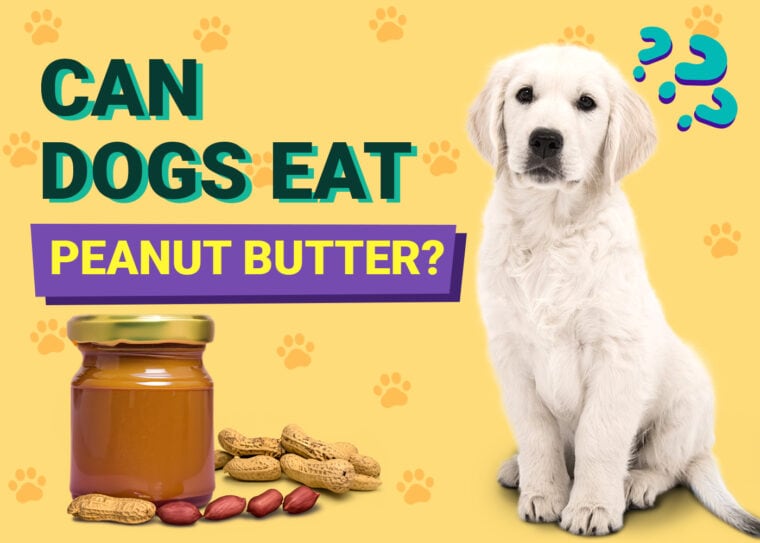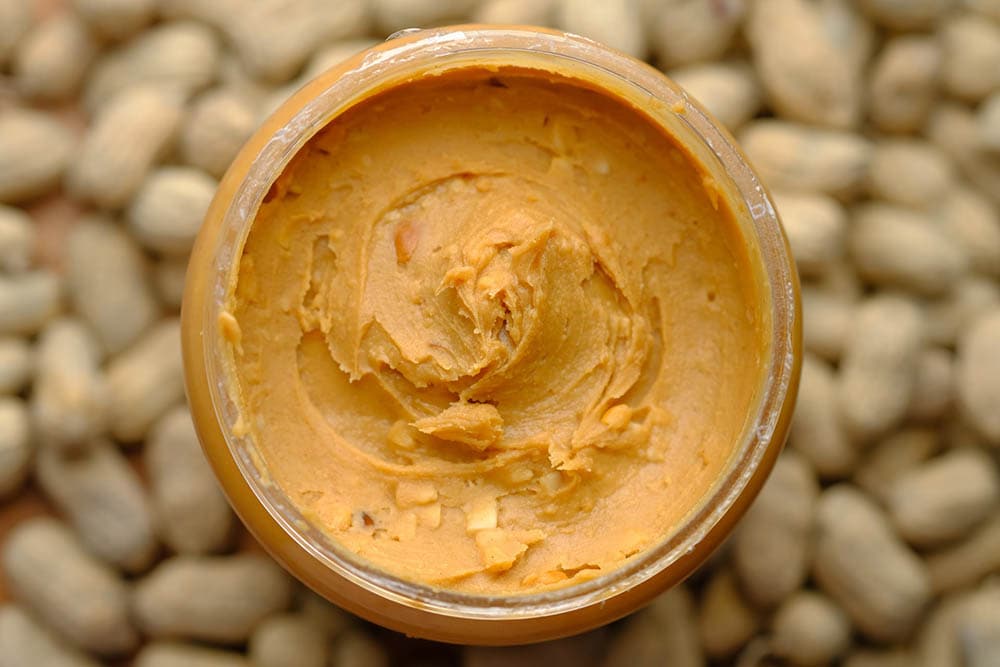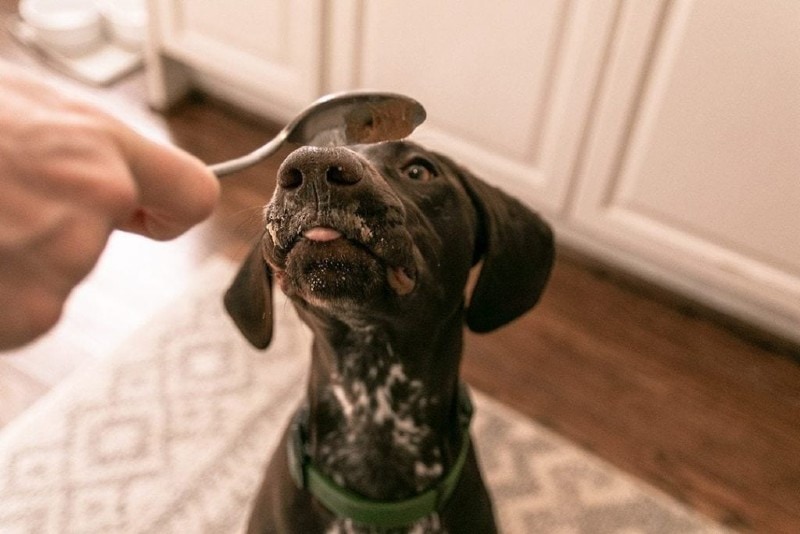
Regular peanut butter is safe to give to most dogs in moderation. However, some ingredients in certain peanut butter types can be dangerous—it’s important to read the ingredient list and stay on the lookout for problematic ingredients.
One of the most dangerous ingredients sometimes found in peanut butter is xylitol, an artificial sweetener. While this ingredient is safe for humans, it’s extremely toxic for dogs. Do not feed your canine anything with xylitol, and contact your vet immediately if your canine does consume something with xylitol.
Why is Xylitol Bad for Dogs?
Xylitol is an artificial sweetener that’s safe for humans but deadly for dogs. It’s found in a wide range of products including some types of peanut butter and may go under other names including wood sugar, birch sugar and birch bark extract.
Xylitol is very dangerous for dogs as their body confuses it with real sugar and causes the pancreas to release insulin quickly. The insulin then causes the level of blood sugar to rapidly decrease (hypoglycaemia). This effect can occur within 10-60 minutes of eating it and unless treated the dangerous low sugar levels can be life-threatening. In humans, xylitol does not stimulate the release of insulin from the pancreas and so it is safe for us to consume.

Which Peanut Butters Contain Xylitol?
The production of peanut butter changes constantly, so it’s nearly impossible to provide a comprehensive list of which brands to avoid. It’s best to read the ingredient list and avoid any that list xylitol. Read the whole list, as xylitol can appear near the end and be sure to watch out that it isn’t listed under another name such as birch sugar.
Peanut butters that are artificially sweetened but claim to be “low calorie” tend to include xylitol. However, you’ll also find this ingredient in peanut butters that don’t meet these requirements. Checking the ingredient list is the only way to know for sure.
Is Jif Peanut Butter Safe for Dogs?
Jif peanut butter doesn’t contain xylitol. However, it does contain additives like sugar and salt. Therefore, the brand isn’t the best option for most dogs. Even the ‘natural’ range can contain ingredients that are not ideal so be sure to double-check the label if you do decide to feed it.
Is Skippy Peanut Butter Safe for Dogs?
Skippy peanut butter typically does not contain xylitol, which is the primary concern when it comes to dogs eating peanut butter.
That said, we highly recommend checking the ingredient list. Product formulations can change over time, so it’s crucial to double-check the ingredients list on the Skippy peanut butter jar or their official website to ensure there have been no changes and that it remains xylitol-free.
However, it often contains high levels of sugar and salt and other additives and so again isn’t the best choice even if Skippy isn’t unsafe in most cases.

What is the Safest Peanut Butter for Dogs?
There are many peanut butters out there that are safe for dogs but just because they don’t contain xylitol doesn’t mean they are an ideal choice. Always check the label and either choose a natural unsalted peanut butter with minimal ingredients, a dog-specific peanut butter or even a homemade one made with only peanuts. Avoid peanut butter that has added sugars, artificial sweeteners, or high sodium content. Beware that ‘natural’ brands can also contain extra unwanted ingredients.
Flavored peanut butter varieties, such as chocolate peanut butter, may contain additional ingredients that could be harmful to dogs. Stick to plain, unsweetened peanut butter. Remember that while peanut butter can be a safe and enjoyable treat for most dogs, treats should not make up more than 10 percent of your dog’s diet. It’s best to swap around with other healthier lower-calorie treats.
How Much Peanut Butter Can a Dog Have?
The amount of peanut butter you can give your dog depends on the dog’s size and exactly what peanut butter it is. Larger dogs can have more than smaller dogs but in general it must be kept as a treat and only given in moderation alongside a healthy balanced diet.
Typically, dogs aren’t going to have any immediate health effects if you feed them “too much” peanut butter although they may suffer from an upset stomach. However, too many high-calorie treats such as peanut butter over a long period can result in weight gain, obesity and related health issues.
A teaspoon of peanut butter is fine for most dogs. Smearing it inside a toy such as a Kong, or on a chew is often the best way to use it and keep your pup entertained for longer.
For dogs that are obese or need a lower-calorie diet, peanut butter probably isn’t the best treat option for them. Those with health problems or on a special diet may need an OK from a vet before they are given peanut butter, as the high-fat content can be a problem for some dogs.

Conclusion
Peanut butter can be a safe and tasty treat for dogs, but pet owners need to be cautious about the type of peanut butter they offer to their furry companions. Regular peanut butter preferably containing only peanuts and possibly a small amount of salt, is generally safe for dogs to consume in moderation.
To ensure the safety of your dog, always read the ingredient list on the peanut butter jar and avoid any products that list xylitol or other harmful substances.
For dogs that are overweight, those with underlying health conditions or on a special diet, peanut butter is best avoided. Check with your vet about the best treat options for your dog in these situations.
Featured Image Credit: Josfor, Shutterstock







